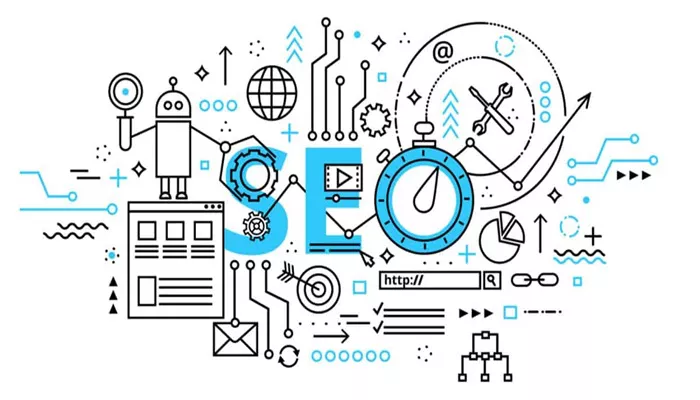Enterprise SEO remains a strategic priority for global e-commerce giants and large organizations alike. However, as artificial intelligence transforms search behaviors, enterprise SEO has evolved beyond traditional website optimization to navigating an entirely new search ecosystem.
Al Sefati, CEO of Clarity Digital and a noted enterprise SEO and omnichannel marketing consultant, highlights the complexities now facing SEO professionals. Managing sites with thousands or even millions of pages, coordinating cross-functional teams, and adapting to AI-driven shifts in user behavior are critical challenges.
With AI-powered search technologies—such as Google’s AI Overviews and large language model (LLM) based engines like Perplexity and ChatGPT search—rapidly reshaping how users find information, businesses must adapt their SEO strategies or risk losing visibility, traffic, and revenue.
Current Landscape of Enterprise SEO
At its core, enterprise SEO involves managing vast digital ecosystems. This includes crawling and optimizing large-scale websites with complex architectures, multilingual content, and thousands of high-value keywords. For major brands like Nike, Amazon, and Salesforce, SEO is a vital growth lever to maintain consistent organic visibility across millions of indexed pages.
Today’s SEO success depends on mastering AI-enhanced keyword and topic research, technical SEO, on-page optimization, and content gap analysis. More than ever, understanding conversational, text-rich queries is essential, moving beyond rigid keyword matching. Selecting the right tools, teams, or agencies is critical to navigate this complexity effectively.
Key Trends Shaping Enterprise SEO in 2025
AI-Driven Search: The rise of Google AI Overviews and alternative AI-based search engines like Perplexity.ai and ChatGPT has diversified search behavior. ChatGPT’s referral traffic, for instance, surged by 60% between June and October 2024. Businesses must now optimize for conversational and natural language queries, diverse content formats, schema markup, personalization, and enhanced user experience.
User Engagement Signals: Search engines increasingly reward sites based on user engagement metrics such as dwell time, click-through rate, and bounce rate. Fast loading times, mobile-first design, and intuitive UX remain indispensable.
Video and Multimedia Integration: Google is integrating more video content directly into search results, making video SEO—especially on platforms like YouTube—crucial for brands seeking prime visibility. AI-powered search can now interpret video context and transcripts to improve ranking relevance.
National and Local SEO Coordination: Enterprises with national or international reach must balance global brand consistency with hyper-local SEO strategies—a nuanced challenge that requires tailored approaches for different markets.
Challenges Facing Enterprise SEO
Managing SEO at scale presents several obstacles:
Scale and Coordination: Large websites require automation for scalability, but internal silos across marketing, IT, legal, and PR departments can hinder implementation.
Duplicate Content Risks: Without strict canonicalization and duplication controls, sprawling sites risk self-competition that damages rankings.
Adapting to AI Evolution: With Google’s AI Overviews and generative AI answers constantly evolving, agility is essential while maintaining foundational SEO principles.
Resource Constraints: Even well-funded teams struggle to allocate resources consistently for audits, experiments, and large-scale optimizations.
The complexity and stakes continue to rise, making inaction increasingly costly.
Best Practices for Enterprise SEO Success
Regular Audits: Use enterprise tools like Screaming Frog and Semrush for continuous site health monitoring, prioritize impactful fixes, and benchmark against competitors.
Leverage Structured Data: Structured data remains key for rich snippets, featured snippets, and AI-generated answers. Implement and maintain schema in products, FAQs, and reviews.
Align with Search Intent: Modern SEO focuses on problem-solving rather than keyword stuffing. Use data-driven platforms like Ahrefs or Clearscope to tailor content to informational, navigational, or transactional intent.
Scale Automation: Automate repetitive tasks such as internal linking, canonical tagging, and metadata updates across thousands of pages.
Strategic AI Integration: Employ AI for content ideation, technical SEO analysis, and competitive monitoring, while retaining human oversight to ensure compliance with EEAT (expertise, authority, and trustworthiness) standards.
Prioritize User Experience: Fast, seamless, and engaging websites correlate directly with higher rankings. Optimize site speed, mobile responsiveness, and interactivity for superior UX.
Evolving Enterprise SEO: Adapt or Fall Behind
Enterprise SEO in 2025 is a dynamic, high-stakes arena where adaptability defines success. As AI reshapes search, competition intensifies. Businesses must elevate SEO from a mere marketing channel to a strategic, cross-functional initiative.
By embracing AI-driven search, optimizing for user engagement, leveraging structured data, and fostering organizational alignment, leading brands will sustain and grow organic visibility in the years ahead.
Ultimately, in the post-AI era, agility, investment, and an unwavering focus on user value will distinguish market leaders from laggards.
Related Topics
- Which Long Tail Keyword Tool Should You Use in 2025?
- Fake AI Tools Exploit Search Engines to Spread Ransomware and Malware
- SEO Expert Debunks Myths About Google’s AI Search

